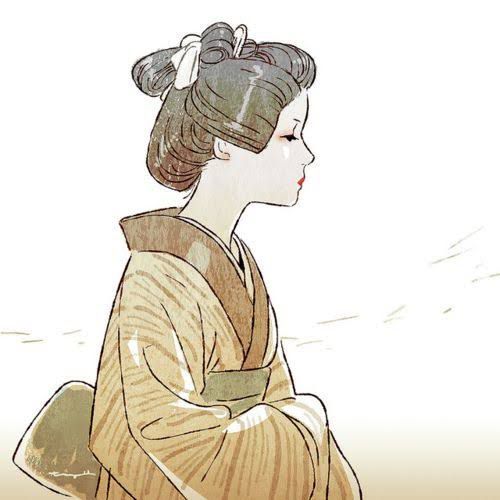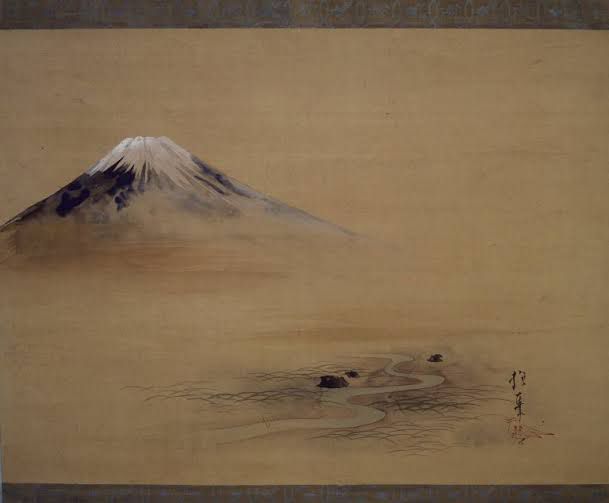Chapter 01 : Second Chances Preface 01
Prompt : It's the day of your death. Just as you close your eyes, you hear a strange voice, asking you if you want another chance. Will you change the past to prevent your death or will you reincarnate into a future time?
Word Limit : 1500 words
Characters at a glance :-
Here's a list of characters mentioned in the first part of my story "Second Chances".
• Visu
-> Giant

• Visu' wife
-> Main Character

• Saint
-> Random Mention
• Goddess Inari
Inari is a popular figure in both Shinto and Buddhist beliefs in Japan. More than one-third (32,000) of the Shinto shrines in Japan are dedicated to Inari. Modern corporations, such as cosmetic company Shiseido, continue to revere Inari as a patron kami, with shrines atop their corporate headquarters.
Inari's foxes, or kitsune, are pure white and act as their messengers.
According to myth, Inari, as a goddess, was said to have come to Japan at the time of its creation amidst a harsh famine that struck the land. "She [Inari] descended from Heaven riding on a white fox, and in her hand she carried sheaves of cereal or grain. Ine, the word now used for rice, is the name for this cereal. What she carried was not rice but some cereal that grows in swamps. According to legend, in the ancient times Japan was water and swamp land."

(Source: https://en.m.wikipedia.org/wiki/Inari_%C5%8Ckami )
• Visu' Children
-> Giants as well
______________________________
Visu' story is a Japanese Folklore so, finding true images of his wife and children was tough. Same goes for Goddess Inari, who sometimes, is worshipped as a male God too. For the time being, I've adjusted the images befitting my story. This isn't done to offend anyone or any culture. Please take this emotion into account.
________________________________
Visu the Woodsman and the Old Priest
Many years ago there lived on the then barren plain of Suruga a woodsman by the name of Visu. He was a giant in stature, and lived in a hut with his wife and children.
One day Visu received a visit from an old priest, who said to him: "Honorable woodsman, I am afraid you never pray."
Visu replied: "If you had a wife and a large family to keep, you would never have time to pray."
This remark made the priest angry, and the old man gave the woodcutter a vivid description of the horror of being reborn as a toad, or a mouse, or an insect for millions of years. Such lurid details were not to Visu's liking, and he accordingly promised the priest that in future he would pray.
"Work and pray," said the priest as he took his departure.
Unfortunately Visu did nothing but pray. He prayed all day long and refused to do any work, so that his rice crops withered and his wife and family starved. Visu's wife, who had hitherto never said a harsh or bitter word to her husband, now became extremely angry, and, pointing to the poor thin bodies of her children, she exclaimed: "Rise, Visu, take up your ax and do something more helpful to us all than the mere mumbling of prayers!"
Visu was so utterly amazed at what his wife had said that it was some time before he could think of a fitting reply. When he did so his words came hot and strong to the ears of his poor, much-wronged wife.
"Woman," said he, "the Gods come first. You are an impertinent creature to speak to me so, and I will have nothing more to do with you!" Visu snatched up his ax and, without looking round to say farewell, he left the hut, strode out of the wood, and climbed up Fujiyama, where a mist hid him from sight.
When Visu had seated himself upon the mountain he heard a soft rustling sound, and immediately afterward saw a fox dart into a thicket. Now Visu deemed it extremely lucky to see a fox, and, forgetting his prayers, he sprang up, and ran hither and thither in the hope of again finding this sharp-nosed little creature.
He was about to give up the chase when, coming to an open space in a wood, he saw two ladies sitting down by a brook playing go. The woodsman was so completely fascinated that he could do nothing but sit down and watch them. There was no sound except the soft click of pieces on the board and the song of the running brook. The ladies took no notice of Visu, for they seemed to be playing a strange game that had no end, a game that entirely absorbed their attention. Visu could not keep his eyes off these fair women. He watched their long black hair and the little quick hands that shot out now and again from their big silk sleeves in order to move the pieces.
After he had been sitting there for three hundred years, though to him it was but a summer's afternoon, he saw that one of the players had made a false move. "Wrong, most lovely lady!" he exclaimed excitedly. In a moment these women turned into foxes and ran away.
When Visu attempted to pursue them he found to his horror that his limbs were terribly stiff, that his hair was very long, and that his beard touched the ground. He discovered, moreover, that the handle of his ax, though made of the hardest wood, had crumbled away into a little heap of dust.
After many painful efforts Visu was able to stand on his feet and proceed very slowly toward his little home. When he reached the spot he was surprised to see no hut, and, perceiving a very old woman, he said: "Good lady, I am amazed to find that my little home has disappeared. I went away this afternoon, and now in the evening it has vanished!"
The old woman, who believed that a madman was addressing her, inquired his name. When she was told, she exclaimed: "Bah! You must indeed be mad! Visu lived three hundred years ago! He went away one day, and he never came back again."
"Three hundred years!" murmured Visu. "It cannot be possible. Where are my dear wife and children?"
"Buried!" hissed the old woman, "and, if what you say is true, you children's children too. The Gods have prolonged your miserable life in punishment for having neglected your wife and little children."
Big tears ran down Visu's withered cheeks as he said in a husky voice: "I have lost my manhood. I have prayed when my dear ones starved and needed the labor of my once strong hands. Old woman, remember my last words: "If you pray, work too!"
We do not know how long the poor but repentant Visu lived after he returned from his strange adventures. His white spirit is still said to haunt Fujiyama when the moon shines brightly.
______________________________
Moral of the story : Balance is important.
This story is a fun tale about a man who lived, as we would say today, in a binary way. He worked all the time without praying until a priest scared him with tales about a terrible rebirth after death. The woodsman then started to do nothing but pray. He prayed to the point where his family starved. He abandons his familial responsibilities to go off to pray when he is tricked into watching a 300 year game of Go by a pair of foxes.
____________________________
Myths and Facts associated with the story :
In Japanese mythology, foxes are said to be magical, wise, and able to assume human forms. Their are two types of foxes, Inari and Yako. Inari are said to be good, celestial foxes associated with the god Inari. Yako are tricksters. The poor woodsman falls prey to a pair of tricksters who punish him for abandoning his duties as a father by making him live far past his natural age.
Japanese culture is very family oriented. One of the chief jobs of father is to provide for their children. In this story, the woodsman shirked his duties because he was afraid of dying and being reborn into unfortunate circumstances. He was unable to pray and work.
The story warns us about how it is not a good idea to be extreme in work or prayer. A good life is one of balance. Too much prayer is just as bad as too much work. It also warns about being distracted by entertainment for too long. Go is a strategic board game that is related to chess in some ways. The woodsman fell under the spell of entertainment and missed out on a life with his family.
______________________________
Source : F. Hadland Davis, Myths and Legends of Japan (London: George G. Harrap and Company, 1912), pp. 136-39. This is a type 766 folktale. Davis entitles the story "The Rip van Winkle of Old Japan."
Website used for this information : https://sites.pitt.edu/~dash/japan.html
https://www.japanpowered.com/folklore-and-urban-legends/visu-woodsman-old-priest



°°°°°°°°°°°°°°°°°°°°°°°°°°°°°°

Bạn đang đọc truyện trên: Truyen247.Pro